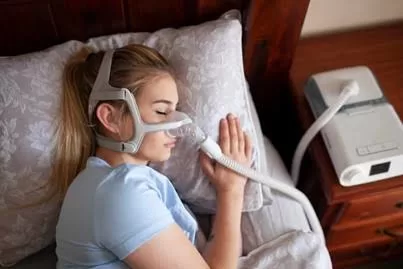Sleep apnea is a sleep disorder that occurs when your breathing is repeatedly interrupted during sleep. This can happen when the muscles in the back of your throat relax and block your airway. Sleep apnea can cause a number of health problems, including daytime sleepiness, high blood pressure, and heart disease.

There are a number of treatments available for sleep apnea, including:
- Continuous positive airway pressure (CPAP). This is the most common treatment for sleep apnea. A CPAP machine delivers a stream of pressurized air through a mask that you wear over your nose and mouth. The pressurized air helps to keep your airway open during sleep.

- Bilevel positive airway pressure (BiPAP). This is similar to CPAP, but it allows for different pressure settings for inhalation and exhalation.

- Auto-titrating positive airway pressure (APAP). This is a type of CPAP machine that automatically adjusts the pressure settings based on your breathing patterns.

- Oral appliances. These devices are worn in the mouth and help to keep the airway open during sleep.

- Surgery. In some cases, surgery may be an option for treating sleep apnea. This may involve removing tissue from the back of the throat or widening the airway.
If you have sleep apnea, your doctor will recommend the best treatment for you. There is no cure for sleep apnea, but treatment can help to improve your symptoms and reduce your risk of health problems.
Treatment without CPAP
In some cases, people with sleep apnea may be able to manage their symptoms without using a CPAP machine. This may be possible if the sleep apnea is mild or if the person is able to make lifestyle changes that help to keep the airway open during sleep.
Some lifestyle changes that can help to treat sleep apnea include:
- Losing weight. If you are overweight or obese, losing weight can help to reduce the severity of your sleep apnea.
- Quitting smoking. Smoking can irritate the airways and make sleep apnea worse.
- Sleeping on your side. Sleeping on your side can help to keep your airway open during sleep.
- Using a chin strap. A chin strap can help to keep your chin from dropping down and blocking your airway during sleep.
If you are considering treating your sleep apnea without CPAP, talk to your doctor. They can help you to determine if this is a safe and effective option for you.

